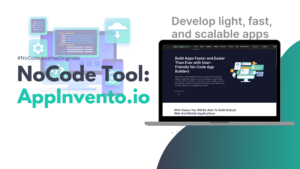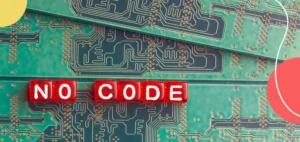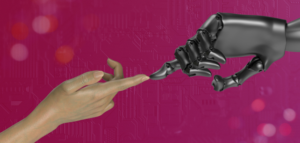The AI Revolution In Software Development: Redefining The Landscape Of Code Creation
- Manish Balakrishnan
Introduction
In the bustling heart of New York, amidst the towering skyscrapers, one of the tech world’s most innovative minds, Olivier Gaudin, took center stage. As the CEO and co-founder of Sonar, he unveiled a vision that could potentially reshape the future of software and app development. The topic of discussion? The captivating potential of generative AI to revolutionize the art of coding.
We will delve deep into the realm of AI-powered software development, exploring the promises it holds, the concerns it raises, and the transformative impact it is likely to have on the development landscape. We will analyze how generative AI may change the very essence of software development, the role of human developers, and its potential to unlock a surge of creativity that could rival the low-code/no-code movement.
Table of Contents
ToggleThe Dawn of Generative AI in Software Development
The software development industry has seen remarkable advancements in recent years, and one technology is emerging as the new protagonist in this ever-evolving saga -generative AI. The concept of harnessing artificial intelligence for software and app development is not new, but it is rapidly gaining momentum. Developers and tech enthusiasts alike are now casting their gaze toward a future where AI, as a code-generating wizard, can drastically enhance productivity, lower the barriers to entry, and possibly redefine the very essence of the field.
Olivier Gaudin, at the helm of Sonar, presented a compelling vision of this AI-powered future during a recent conversation with reporters. His insights provide a fascinating glimpse into the potential, as well as the questions, surrounding the implementation of generative AI in software development.
Unveiling the Unknowns
As Olivier Gaudin aptly put it, there are “a lot of unknowns” in the realm of generative AI. While this technology is making coding and other technical disciplines more accessible to a broader audience, the core of software development remains complex. This raises the fundamental question: will we still need human developers when AI can generate code?
Gaudin’s answer is are sounding “yes.” The potential of generative AI in development doesn’t replace the human element; it enhances it. In this new landscape, professional developers will play a crucial role in providing oversight to AI-generated code. As Gaudin aptly puts it, “More code means more code to review.”
The Evolution of Software Development
In the face of a persistent shortage of developers to meet the burgeoning demand for innovative software and applications, AI has emerged as a potential game-changer. It promises to empower individuals to achieve more in the field, a concept that might sound quite familiar – low-code and no-code development.
Low-code and no-code platforms have gained traction in recent years, allowing “citizen developers” to create applications without in-depth technical expertise. However, according to Gaudin, generative AI is poised to take this to the next level, essentially rendering the low-code/no-code movement obsolete. He goes as far as to declare that “AI actually gets rid of low-code and no-code…It’s a better version of this.”
In the following sections, we will dissect this bold claim and explore how AI-generated code might be the transformation the software development world has been waiting for.
The Potential of Generative AI in Software Development
The advent of generative AI promises a multitude of benefits for the software development industry, ranging from efficiency to creativity. Let’s take a closer look at how this technology might revolutionize software development.
-Enhanced Productivity
The software development process, despite its intricate nature, can be time-consuming. Developing code from scratch, debugging, and testing can take up substantial amounts of time and resources. Generative AI can significantly expedite this process, enabling developers to focus on higher-level tasks. As Gaudin aptly puts it, “AI is a better version of low code/no code – much better for sure.”
-Democratization of Development
One of the most exciting promises of generative AI is its potential to democratize software development. With AI-generated code, individuals with limited technical expertise can dive into the world of software development. This new found accessibility may lead to a wave of innovation as more people gain the capability to create applications.
-Creativity Unleashed
Generative AI could usher in an era of unprecedented creativity in software development. By handling the repetitive and mundane aspects of coding, developers can focus on crafting innovative, user-centric solutions. This increased creative potential could lead to a surge in software innovation and ultimately transform the way we interact with technology.
-Quality Assurance
The surge in AI-generated code doesn’t spell the end of human involvement. Instead, it offers developers an opportunity to play a more strategic role. Human over sight is essential in ensuring the quality and security of software applications. As the volume of code multiplies, the importance of rigorous code reviews become seven more evident.
-Addressing the Developer Shortage
The software development industry is grappling with a significant shortage of skilled developers. Generative AI can help bridge this gap by allowing individuals with varying skill levels to contribute effectively. This, in turn, could relieve some of the pressure on organizations to find and retain skilled developers.
-Expanding Innovation Horizons
The integration of generative AI in software development might lead to the development of applications that were previously deemed unfeasible. With code generation tools at their disposal, developers can experiment more freely, leading to groundbreaking innovations.
-Challenges and Concerns
While the promises of generative AI in software development are tantalizing, the journey is not without its challenges and concerns.
-Code Quality and Security
AI-generated code is only as good as the data and algorithms it’s trained on. Ensuring the quality and security of the code produced is paramount. Any vulnerabilities or bugs in the AI’s knowledge base could be transferred into the generated code, leading to potential issues.
-Ethical Dilemmas
The rise of generative AI in software development also raises ethical questions. What happens when AI generates code that infringes on copyrights or patents? Addressing these issues will be crucial to maintaining the ethical integrity of software development.
-Human Role and Adaptation
The transformation of software development through generative AI doesn’t mean humans are rendered obsolete. Developers will need to adapt to new roles that emphasize creative problem-solving, code review, and ensuring that AI-generated code aligns with business objectives.
-Privacy Concerns
Developers in AI-powered software development must prioritize user privacy, particularly when handling sensitive data. They must diligently adhere to strict privacy regulations to safeguard user information, making it a paramount concern in the creation of AI-generated applications.
The Future of Software Development
The rapid evolution of AI is pushing the boundaries of what’s possible in software development. As generative AI becomes more prevalent, we can expect to see fundamental shifts in the industry. Developers will find themselves in roles that emphasize creativity, strategy, and quality assurance rather than tedious, repetitive coding tasks.
Generative AI is not about replacing developers; it’s about augmenting their capabilities and expanding the horizons of innovation. In the future, software development will be a collaborative effort between human ingenuity and artificial intelligence.
Conclusion
Olivier Gaudin’s vision of the future of software development powered by generative AI is nothing short of revolutionary. It opens up a world of possibilities, from enhanced productivity and accessibility to an explosion of creativity in software innovation. While challenges and concerns persist, the transformation is inevitable.
As the software development landscape evolves, developers, organizations, and the industry as a whole need to embrace this change, harnessing the power of generative AI to redefine what is possible in the world of software and app development. The journey has begun, and the future promises to be nothing short of extraordinary.
Share
follow us
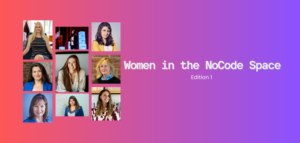
Women In The NoCode Space – Edition 1
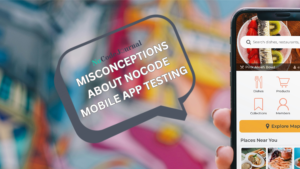
Misconceptions About NoCode Mobile App Testing
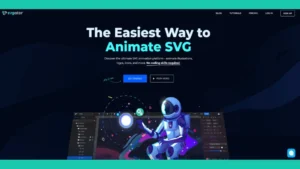
NoCode Tool: SVGator

Nocode Tool: Hive
Explore related posts

The Importance Of OutSystems PoCs
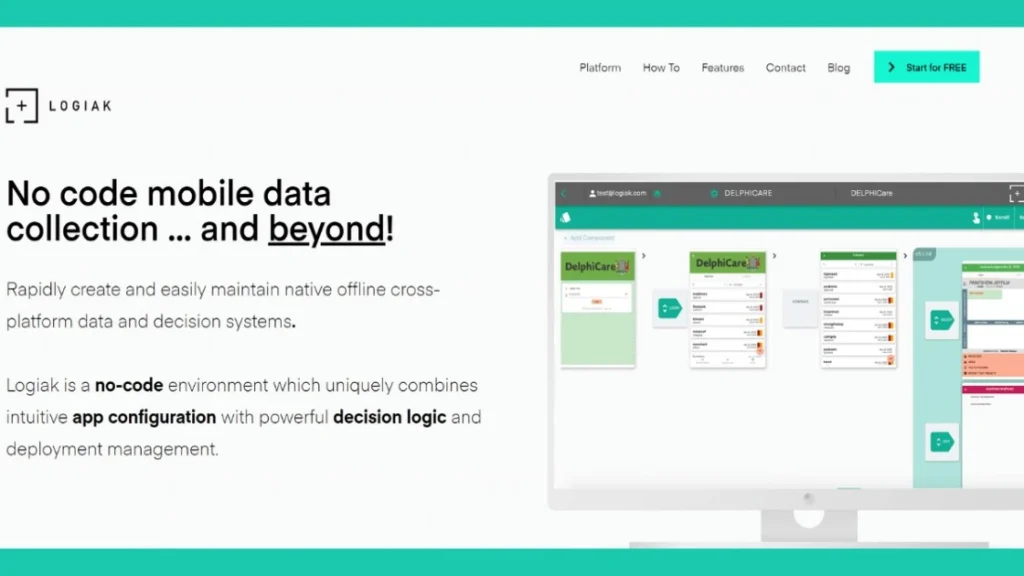
NoCode Tool: Logiak
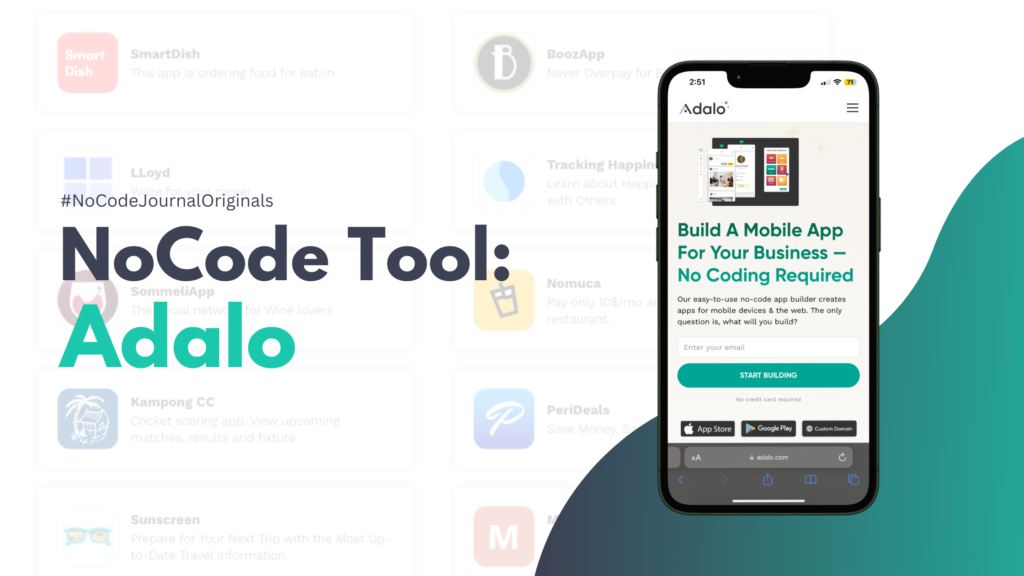
NoCode Tool: Adalo







